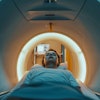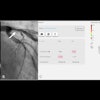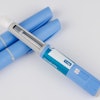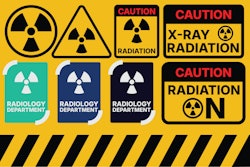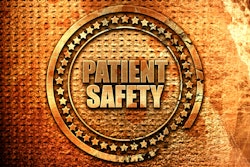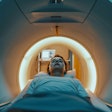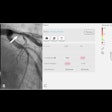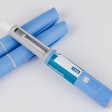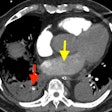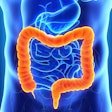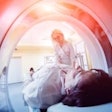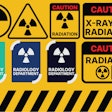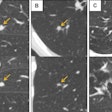Ten patients at a general hospital in Dendermonde, a city in the Flemish province of East Flanders, became unwell after undergoing a CT scan. An investigation into the cause of the incident is now underway, and the CT service was briefly suspended, according to media reports. Contamination appears to be the most likely cause.
According to a report posted in De Morgen, a Flemish newspaper published in Antwerp, the CT scans were performed at AZ Sint-Blasius Dendermonde on the morning of Wednesday, 27 August. Shortly afterwards, 10 patients developed symptoms, including shivering, fever, and increased heart rate.
All the patients were admitted to the hospital for follow-up. “It is a fact that all ten patients were given a contrast agent before the CT scan. Whether this was a contributing factor is not yet clear,” the article continued.
All CT scans at the Dendermonde hospital were temporarily halted, and patients waiting for a scan will be notified. The progress of the investigation is being continuously evaluated, and until there is more clarity, there will be no more CT scans, De Morgen stated. (Normal service at the hospital has now resumed, however).
Statement from the hospital
Other patients who underwent a contrast-enhanced CT scan (Iomeron, from Bracco, was used) immediately went home and were asked to report back for a check-up, the hospital’s communications manager Dominique Potteau told VRT NWS, the main news channel of the Flemish national broadcasting company VRT. “They have all been examined and had no symptoms. They have therefore been sent home.”
The hospital is working hard to determine the cause. “It is crucial to know what is causing these symptoms so we can treat the patients appropriately,” Potteau added. “We have also contacted government agencies, such as the health inspectorate and the Federal Agency for Medicines and Health Products, to ask for their support. This is a very unusual situation. Our first priority is the care of the hospitalized patients and the care they receive from us.”
According to the VRT NWS article, all the equipment has been replaced, and everything is being monitored closely.
Potential causes
It’s too early to suggest a link between this incident and iodinated contrast media (ICM), a contrast media safety expert told AuntMinnieEurope.com on 28 August.
Palpitations usually fall under Type A (or nonhypersensitive) adverse reactions, related to effects due to chemotoxicity or hyperosmolarity, the source noted. “Such updates are specific to an iodine-containing contrast agent (there are 7 on the international market) and not related to a group.”
Also, there is no such thing as “allergy (or hypersensitivity) to contrast agents,” the expert pointed out. “This particular side-effect is extremely rare (see October 2025 European Journal of Radiology article) and certainly doesn't occur in dozens in a morning, so it seems more likely to me that other factors were at play.”
It would be useful to know which ICM was used in Dendermonde and what the results of the study were, the source said.
One potential cause that is likely to be investigated is contamination (Iomeron, NaCl Baxter, Nemoto syringe pack, or pipes). All possibilities are being examined, and every company involved is believed to have been contacted, along with the Department of Health and the Belgian Federal Agency for Medicines and Health Products (FAMHP/FAGG).
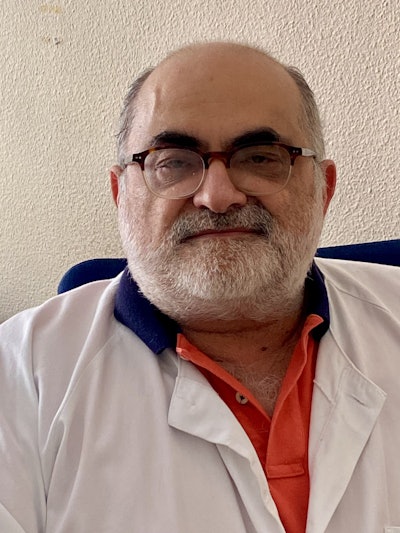 Dr. Francisco Vega, PhD.
Dr. Francisco Vega, PhD.
It is most likely a batch-related issue, potentially due to contamination with a microorganism (resulting in bacteremia) or the presence of a pyrogen, Dr. Francisco Vega, PhD, from the Department of Allergy, Hospital Universitario de la Princesa, Madrid, told AuntMinnieEurope.
"The tachycardia can be explained as a secondary response to fever. This presentation is less consistent with a true drug-related adverse reaction and more likely represents a complication arising from inadequate laboratory quality control," he noted. "The implicated batch should be isolated for investigation (e.g., microbiological cultures, chromatography, etc.). In this case, the use of an alternative ICM should not pose any problem."
Another possible explanation is contamination or malfunction of the injection pump, he explained. "This scenario would be more likely if similar reactions were observed with different ICMs. In such cases, the pump and infusion system should be disinfected and thoroughly cleaned."
News broke earlier this week of a separate CT safety incident in which a 22-year-old Brazilian lawyer died from a severe allergic reaction to a contrast agent used during a routine CT exam. For further details about that incident, go to the article in AuntMinnie.com.
Editor's note: The photo on the homepage used to introduce this article is an aerial view of Dendermonde, including the city's court of justice building. It does not show the general hospital.


